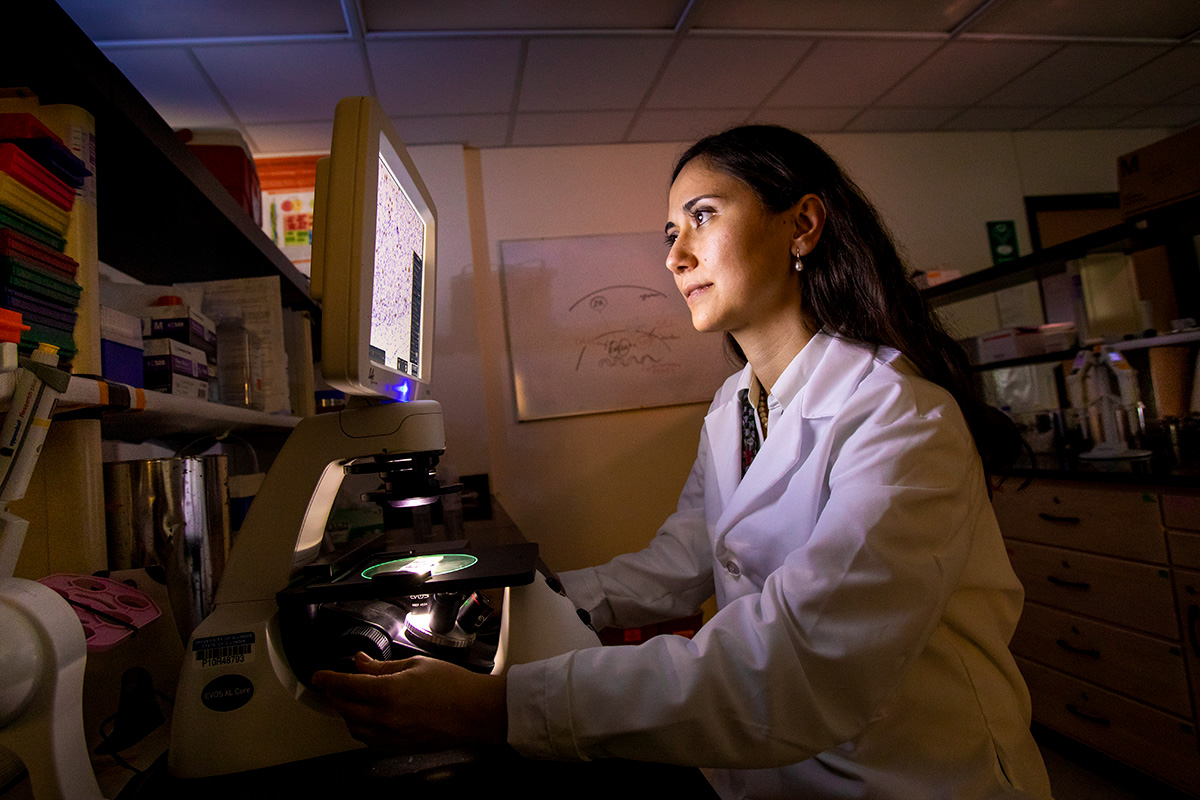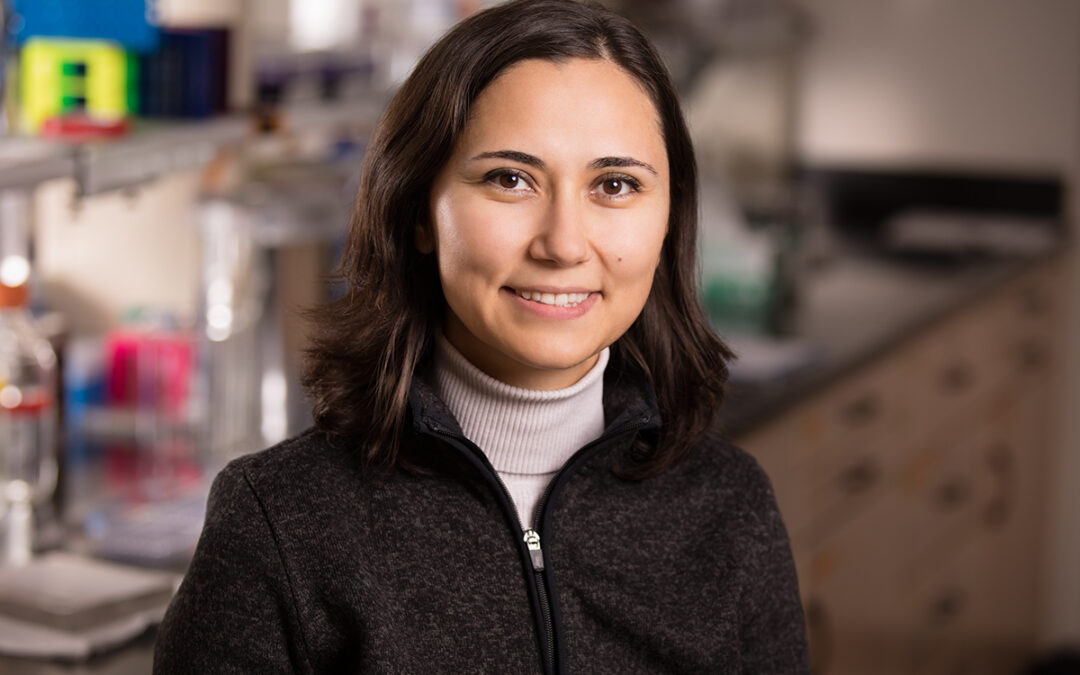Zeynep Madak-Erdogan, member of the Cancer Center at Illinois and Cancer Research Advocacy Group, attributes her passion for cancer research to the serendipity in the science.
Madak-Erdogan’s interest in researching cancer began during high-school, when the first molecular biology and genetics department in Turkey was established. She began her academic journey there, then continued her studies at the University of Illinois for her PhD, postdoctoral fellowship, and finally, as a faculty member.
“That synergistic environment in the molecular biology and genetics department, where many of the researchers were interested in cancer, made me more interested in it too. It solidified my aim towards cancer research,” said Madak-Erdogan.
Since joining the University of Illinois, Madak-Erdogan has been concentrating her efforts on understanding health disparities in cancer and other diseases. Currently, she and her colleagues, including collaborators at the University of Illinois at Chicago and Mercy Hospital, are studying estrogen-receptor (ER) signaling and regulation.
During this research, she discovered that African-American women in Southside Chicago are four times more likely to die from estrogen-receptor positive (ER+) breast cancer. This type of breast cancer is otherwise a better prognosis for patients coming from more affluent backgrounds, particularly if the patient is Caucasian.
Additionally, ER+ tumors are highly affected by metabolic status, which is in turn influenced by socioeconomic status. “Food quality, exercise, sleep, and one’s overall health and well-being are affected by socioeconomic status. Women with lower socioeconomic statuses are much more likely to die from ER+ disease due to these factors,” said Madak-Erdogan.

Collaborating with the Institute of Cancer and Genomic Sciences in Birmingham, England, and the University of Illinois’ National Center for Supercomputing Applications, Madak-Erdogan is also applying her understanding of these health disparities in pregnant women, with a focus on gestational diabetes.
Madak-Erdogan’s dedication to her research has led to a recent promotion, pending board approval, to associate professor in Food Science and Human Nutrition at the University of Illinois at Urbana-Champaign, where she also has the opportunity to work with members of the Cancer Research Advocacy Group.
“Many of my projects are shaped by research advocates and cancer survivors. I appreciate it a lot and I think it should be more widespread; it’s always great to work with cancer survivors and bring in their perspective,” said Madak-Erdogan.
A $2 million clinical trial related to this study was announced in October 2020, with the funding secured by clinical collaborators from MD Anderson. The trial will be testing a cancer treatment combination in advanced breast cancer patients based on Madak-Erdogan’s research.
Written by: CCIL Communications Team
These studies were funded by the Birmingham-Illinois Partnership for Discovery, Engagement, and Education (BRIDGE), and the Chicago Cancer Health Equity Collaborative (ChicagoCHEC).
This research and Madak-Erdogan was recently featured in Big Ten CRC’s “Across the Consortium: July 2020.”
To learn more about Madak-Erdogan’s research, visit the Women’s Health and Nutrition Lab website.

